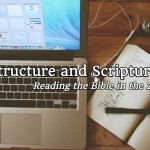KURT NOTE: Today we have a guest contribution by Jeff Clarke, who has been a guest before. I’m always challenged by what he writes. This post is about the wind and fire of God… some Holy Ghost stuff… Read and offer feedback if you can!
——————————————————-
For some time, I have struggled with the narrow pneumatological focus within Classical Pentecostalism. It’s as though we have defined the work of the Spirit almost exclusively in reference to Spirit baptism (with tongues as the initial evidence). While we may also include spiritual gifts in an attempt to round out the package, our current categories fail to capture the scope and breadth of the Spirit’s activity.
It was a few years ago while doing research for a paper on developing a Pentecostal approach to the religions when I first encountered the depth of this exclusivity. My research suggested that while Pentecostals are very reluctant to hold to the possibility of the Spirit’s activity in other religions, Charismatics (those who experience a filling of the Spirit, but choose to remain within their non-Pentecostal denominations), didn’t share this reticence.
I concluded that Classical Pentecostalism, unlike the Charismatic movement, has at its center a very exclusive understanding of the work of the Spirit. They are apt to embrace a narrow definition of the Spirit’s activity that essentially reduces the work of the Spirit to Spirit baptism as ‘the’ primary act. However, by doing so, they effectively rule out the cosmic activity of the Spirit, particularly as it relates to issues in the sciences, environment, theology of religions, and the broader aspects of the Spirit’s kingdom-building work.
My point in all of this is that I’ve found the Classical Pentecostal understanding of the Spirit to be wanting. While some academics in the movement are striving to expand the theological boundaries of pneumatology, very little of what they actually teach trickles down to the congregational level. When this happens, a deep sense of suspicion arises between the academy and pew, with little to no change occurring at the grass-roots, where it’s often needed most.
So, while academic Pentecostals are exploring the implications of a cosmic pneumatology, the churches are, for the most part, carrying on with business as usual by maintaining their focus on Spirit baptism as the pinnacle of belief and practice.
As a result, I’ve decided to embrace a broader focus of the Holy Spirit and activity in the church and world. I will not ignore the Pentecostal understanding of Spirit baptism, but seek to do justice to the Charismatic focus that includes, yet moves beyond, this classical emphasis. My personal theological orientation will be intentionally inclusive and cosmic in scope, rather than exclusive and local.
In fact, there is a Spirit-inspired inclusive dynamic built into the very nature of Pentecost that welcomes all people, everywhere, to come to God through Jesus Christ and drink of the life-giving Spirit. At Pentecost, there are no boundary markers, only open invitations to participate in the ongoing kingdom work of Christ.
To conclude, I have not abandoned my Pentecostal theology and experience of the Spirit. Not at all. The Spirit continues to be the Divine Paraclete, guide, teacher, enabler and revealer of Jesus.
I welcome the Spirit’s constant activity in my life, pressing me upward and onward towards the goal of Christ-likeness. I need the Spirit, everyday and in every way. And, I feel the Spirit has taken me here, where I am learning to move beyond Pentecost and embrace a more inclusive Charismatic life and theology.
Welcome, Holy Spirit!
———————————————
Jeff K. Clarke is a blogger and an award-winning author of articles and book reviews in variety of faith-based publications. He blogs regularly at Jesus (Re)Centered – informing | impacting | inspiring. He is on Twitter and Facebook.













